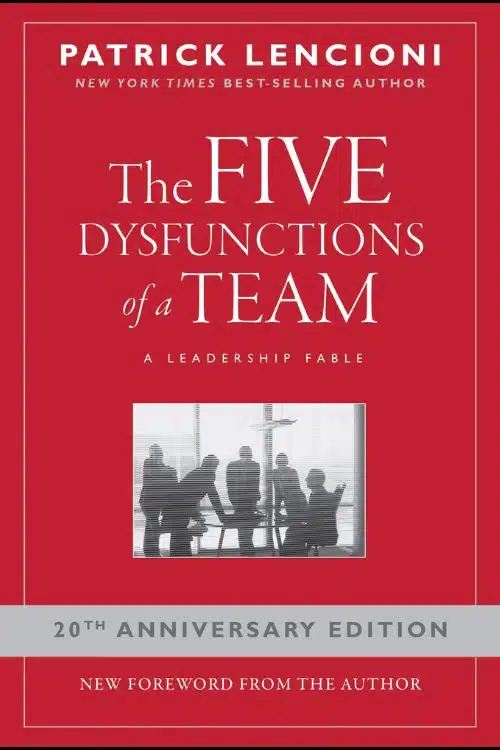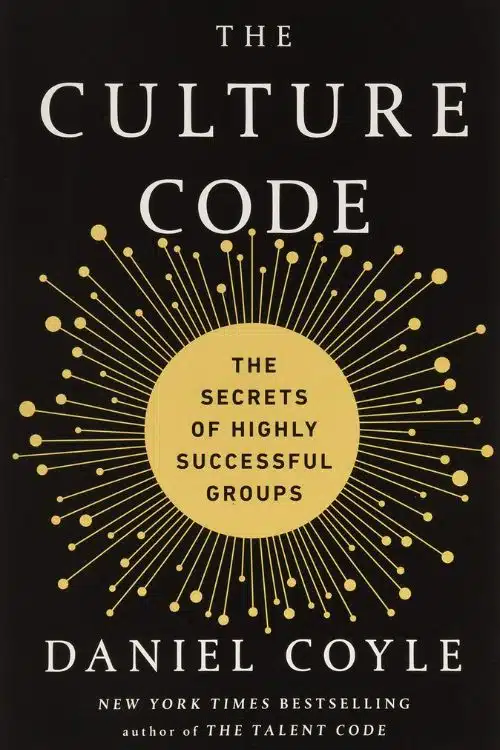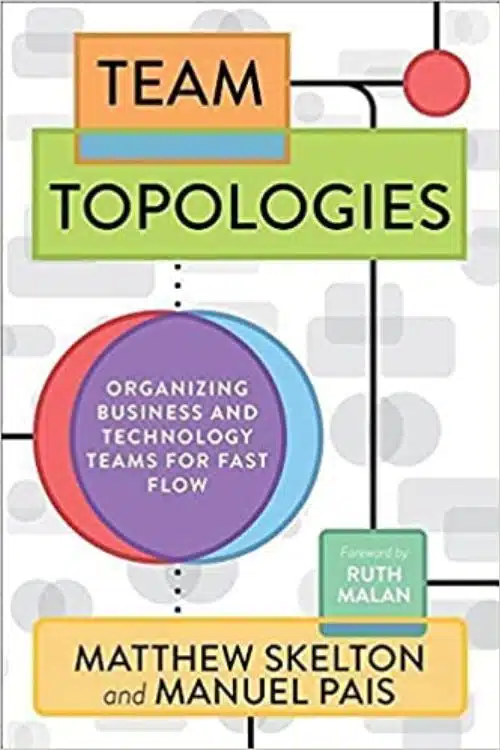- By drawing parallels between high-performing sports teams and corporate teams, “Great Teams” offers a useful…
- Maxwell’s book, “The 17 Indisputable Laws of Teamwork,” showcases numerous examples of how to build an…
- In Leaders Eat Last, Simon Sinek highlights the importance of trust in team dynamics and emphasizes that leaders must ea…
- Unlike other team-building Books, Leaders Eat Last puts a strong emphasis on the role of leaders in team success.
- Creating a positive team environment is vital because attitudes are contagious.
- Team Topologies presents a practical and adaptable model for organizational design and team collaboration.
Building a successful team can be a challenging task, requiring a balance of interpersonal skills, leadership, and effective communication. Whether you’re a team leader, manager, or team member, investing in resources to enhance your team’s collaboration and productivity can make a significant impact. Books on effective teamwork provide a valuable source of insights and guidance for developing stronger teams. In this article, we’ve compiled a list of 10 Books on Effective Teamwork for Building Stronger Teams. From identifying the essential virtues of an ideal team player to creating a positive team culture, each book offers unique perspectives and actionable strategies for building and leading high-performing teams.
10 Books on Effective Teamwork for Building Stronger Teams
The Five Dysfunctions of a Team by Patrick Lencioni

Throughout the book, Lencioni explores the five dysfunctions that often impede even the best teams from achieving success, and he provides actionable steps and a powerful model for overcoming these obstacles and creating a cohesive, effective team. Lencioni’s gripping tale is a timeless reminder that effective leadership requires not only insight but also courage. Through his masterful storytelling and powerful message, Lencioni offers valuable lessons for anyone striving to become an exceptional team leader.
Great teams by Don Yaeger

Don Yaeger’s book, “Great Teams,” offers a guide to building successful teams by emphasizing the importance of understanding the team’s purpose and giving members the autonomy to manage group discussions and handle conflicts. The book highlights the significance of mentorship in creating a culture of excellence and provides insights into winning critical situations. By drawing parallels between high-performing sports teams and corporate teams, “Great Teams” offers a useful roadmap for anyone seeking to build a successful team.
Teamwork 101 by John C. Maxwell

Maxwell emphasizes the importance of recognizing that a team is more than just a collection of individuals. He stresses the significance of creating an environment that fosters collaboration, communication, and a shared sense of purpose. The book offers practical advice on building trust, managing conflicts, and maximizing the strengths of individual team members to achieve collective success. Maxwell emphasizes that effective teamwork is not simply about following a set of rules or guidelines, but rather about cultivating a mindset that prioritizes the team’s success above individual interests. Overall, “Teamwork 101” is an essential read for anyone seeking to improve their leadership skills and build a successful, collaborative team.
The Culture Code by Daniel Coyle

Daniel Coyle’s “The Culture Code” examines what successful organizations such as Pixar, Google, and the San Antonio Spurs have in common: exceptional team-building skills. Coyle provides insight into these organizations and their secrets to success. He not only delves into the workings of these groups, but he also identifies the key factors that promote team cohesion across all areas of life. By examining verbal and physical cues that bring people together and outlining specific strategies that encourage collaboration and trust, Coyle offers a roadmap to building successful teams. Additionally, he offers cautionary tales of toxic cultures and provides guidance on how to reform them. Overall, “The Culture Code” highlights the importance of effective cooperation and teamwork, showcasing the extraordinary achievements that are possible when these skills are honed.
The 17 Indisputable Laws of Teamwork by John C. Maxwell

Dr. Maxwell’s book, “The 17 Indisputable Laws of Teamwork,” showcases numerous examples of how to build and maintain a successful team. The Law of High Morale inspired a man in his fifties, who couldn’t even swim, to train for the toughest triathlon in the world. The Law of the Big Picture prompted a former US president to travel across the country by bus, sleep in a basement, and do manual labor. Following the Law of the Scoreboard allowed one web-based company to succeed and remain profitable while other internet businesses failed. Meanwhile, ignoring the Law of the Price Tag led to the downfall of one of the world’s largest retailers, resulting in its closure after 128 years in business.
In “The 17 Indisputable Laws of Teamwork,” Dr. Maxwell provides practical guidance on how to build and maintain a successful team, whether you’re a coach, player, teacher, student, CEO, or non-profit volunteer. By highlighting these laws and their real-world applications, Maxwell empowers readers with the necessary attitudes and strategies to create thriving teams.
Crucial Conversations by Kerry Patterson

This book emphasizes the importance of skills such as controlling emotions, persuading without resorting to bullying, and creating safe spaces for employees to speak honestly. Unlike other team-building Books that mainly concentrate on team formation, Crucial Conversations emphasizes conflict resolution and helps team members avoid unnecessary confrontations while dealing with unavoidable upset. By providing practical guidance on how to navigate tough conversations, Crucial Conversations can help teams minimize workplace conflict and promote a more harmonious working environment.
Leaders Eat Last by Simon Sinek

Trust is a key component for effective teamwork, while a lack of trust can lead to individualistic behavior within a team. Teams that have trust tend to be happier, more motivated, and successful. In Leaders Eat Last, Simon Sinek highlights the importance of trust in team dynamics and emphasizes that leaders must earn the trust of their team members. To build trust, leaders must prioritize their team’s needs, demonstrate self-sacrifice during tough times, and foster a culture of respect and collaboration. Unlike other team-building Books, Leaders Eat Last puts a strong emphasis on the role of leaders in team success. A notable quote from the book states, “Leaps of greatness require the combined problem-solving ability of people who trust each other,” emphasizing the vital role that trust plays in team success.
The Energy Bus by Jon Gordon

Creating a positive team environment is vital because attitudes are contagious. Leaders should strive to foster a culture of positivity within their teams. The Energy Bus is an excellent resource for developing this culture. This book teaches how to maintain a positive outlook and inspire others to do the same, despite challenging circumstances. Though we cannot control external events, we can control our reactions to them. By modeling optimistic behavior, leaders can encourage their teams to adopt a friendly and positive outlook, resulting in better outcomes. The author, Ken Blanchard, emphasizes the importance of managing people’s energy, including the leader’s energy, to achieve success within an organization.
Team Topologies by Matthew Skelton

Team Topologies presents a practical and adaptable model for organizational design and team collaboration. This model is based on four main team types and three team interaction patterns, which can evolve with the organization’s technological and structural development. Authors Matthew Skelton and Manuel Pais provide readers with valuable insights into successful team patterns and interactions to choose and develop the most suitable team structure for their organization. The book emphasizes the importance of keeping software healthy and optimizing value streams. Team Topologies offers a clear path for teams to interact and collaborate effectively, leading to a more sustainable software architecture and transforming inter-team challenges into valuable signals for self-directed organizations.
The Ideal Team Player by Patrick Lencioni

The Ideal Team Player is a book by Patrick Lencioni that focuses on the three essential virtues that make someone an ideal team player: humility, hunger, and people smarts. The author argues that individuals possessing these qualities are not only great contributors to a team, but are also much more likely to achieve success in their own careers. The book offers practical advice on how to identify and cultivate these virtues in yourself and others, as well as how to build and lead high-performing teams. The author emphasizes that hiring, training, and developing individuals with these three virtues is critical for the long-term success of any organization.
Also Read: Top 10 Books on Self Love



